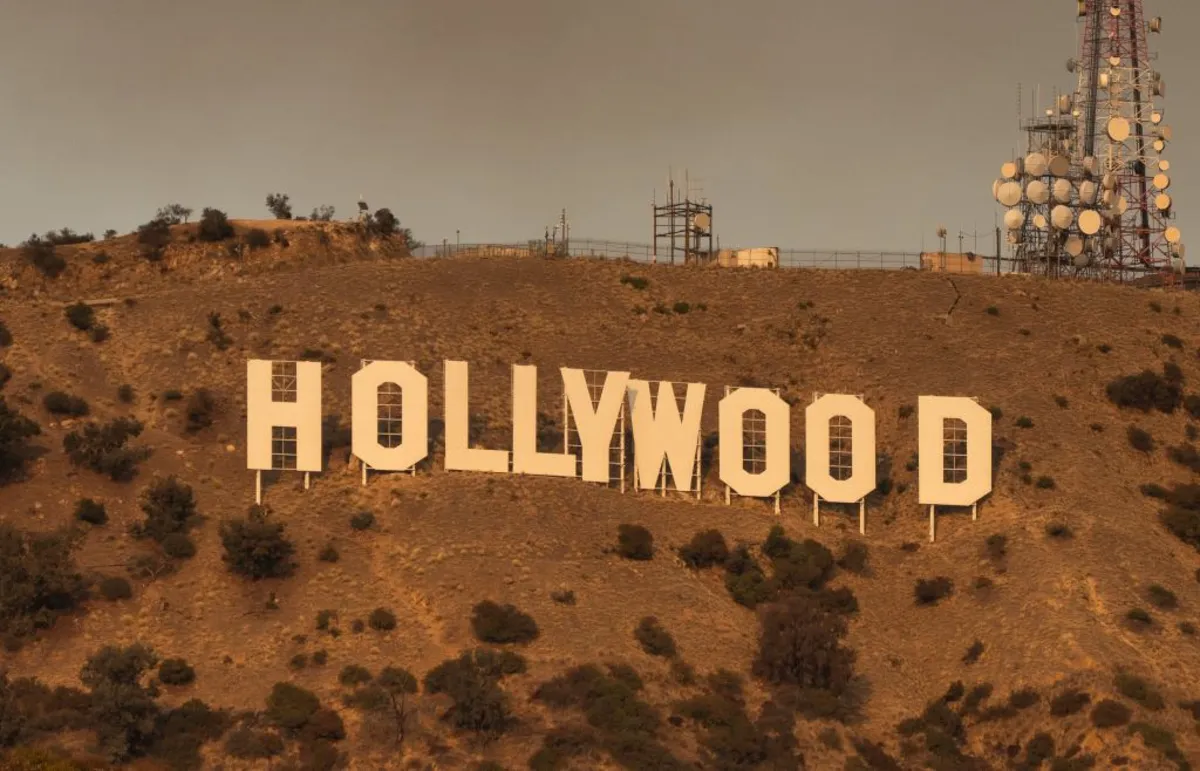
The U.S. film industry is facing a significant upheaval following former President Donald Trump’s recent announcement regarding the imposition of a 100% tariff on all movies produced outside the United States. In a message shared on Truth Social, Trump labeled foreign film productions as a “national security threat”, asserting that they not only divert filmmakers but also introduce messaging and propaganda that could undermine the American film industry. This declaration, while vague, has already generated considerable concern among industry professionals in both the U.S. and international film sectors.
Reactions from industry leaders have been swift and severe. One prominent German producer characterized the announcement as a “bombshell,” while a veteran producer from the UK expressed incredulity: “So U.S. companies can only make U.S. films? James Cameron can’t make Avatar overseas? Who pays the tariffs?” The implications of such a policy could devastate independent distributors and creative professionals alike, as the costs associated with producing films could skyrocket due to the tariffs.
Moreover, the impact would extend to major studios and streaming platforms, which rely on a global production model. A seasoned international seller stated, “This greatly affects the streamers, whose model is to produce locally and exploit globally, including in the core U.S. market.” The concern is that foreign-produced films may never reach American audiences, effectively stifling diversity in content.
Should Trump’s proposal materialize, the repercussions could be catastrophic. Studios currently benefit from producing films overseas thanks to various tax incentives that make international filming economically viable. A distribution executive noted, “This will make low and mid-level productions completely unproducible, hence destroying many jobs from producer assistants to writers to post-production.” The potential tariff could lead to a decline in big-budget productions, as studios may struggle to meet the elevated costs of filmmaking.
In light of this, Screen Producers Australia’s CEO Matthew Deaner remarked on the uncertainty surrounding the practical application of these tariffs, emphasizing that the announcement has already sent shockwaves throughout the global industry. The Australian film sector, in particular, is calling for urgent government action to bolster local resilience against such international developments.
Internationally, film industry professionals are voicing their concerns. John Barnett, a producer from New Zealand, criticized Trump’s logic, suggesting that his approach lacks coherence. Meanwhile, Evelyne Snow, head of communications for the Quebec Alliance of Image and Sound Technicians (AQTIS), stated, “There’s honestly not much that has shaken our industry in this way,” highlighting the unprecedented nature of Trump’s announcement.
As the Cannes Film Market approaches, industry insiders are already feeling the ramifications of this potential policy shift. One U.S. film company reported that Trump’s earlier moves have affected sales in China, and the looming tariff could further diminish the global market, deterring buyers from committing to projects amid uncertainty.
Governments worldwide are beginning to react to Trump’s announcement. Australia’s Home Affairs Minister Tony Burke asserted that the Australian screen industry would be defended vigorously. New Zealand Prime Minister Christopher Luxon echoed similar sentiments, committing to champion the local film sector. In the UK, Caroline Dinenage, chair of the Culture, Media and Sport Committee, warned that making it more difficult to produce films in the UK would not serve American business interests.
As Trump continues to assert that foreign nations are undermining the U.S. film industry, it is clear that this proposed tariff could have far-reaching consequences. The Motion Picture Association reports that the U.S. film industry has historically maintained a trade surplus, generating $22.6 billion in exports against $15.3 billion in imports. The potential for these tariffs to disrupt a thriving industry raises serious concerns among professionals across the globe.
As the film industry grapples with the implications of Trump’s announcement, many are left wondering what the future holds. With the Cannes Film Market on the horizon and uncertainty looming, industry professionals are on high alert. The possibility of a 100% tariff on foreign films could reshape the landscape of filmmaking, prompting urgent calls for increased tax incentives and support for local productions in the U.S. and beyond.
As more information becomes available, the industry will undoubtedly continue to monitor the situation closely, as these developments threaten to alter the dynamics of global film production and distribution.